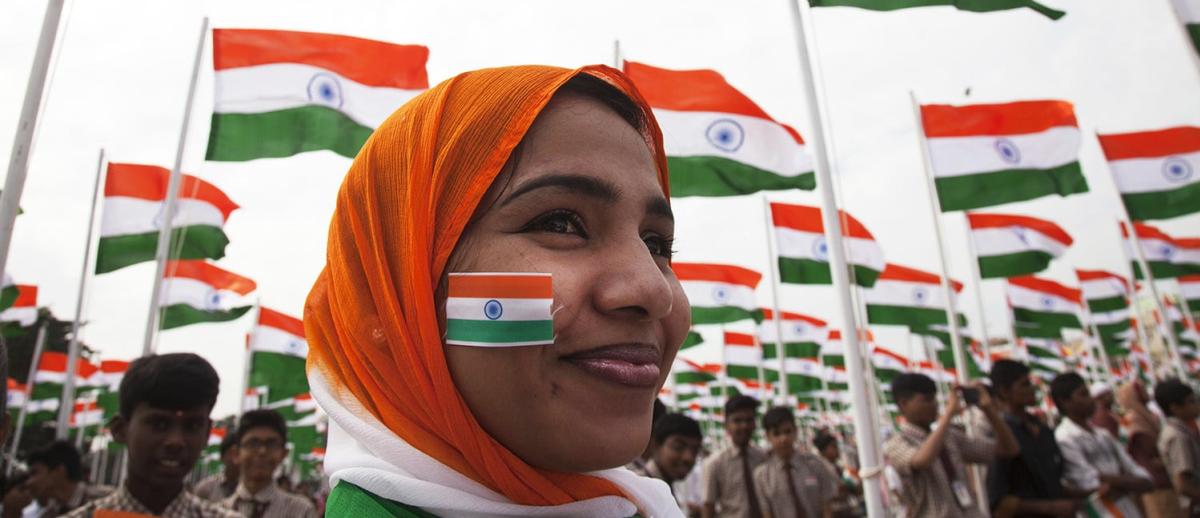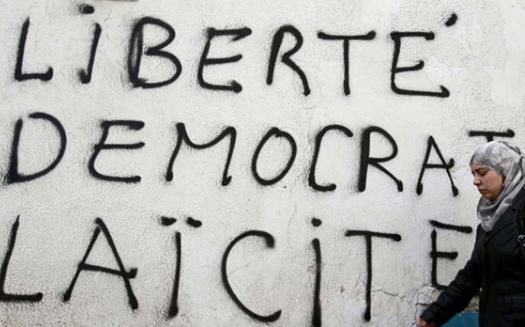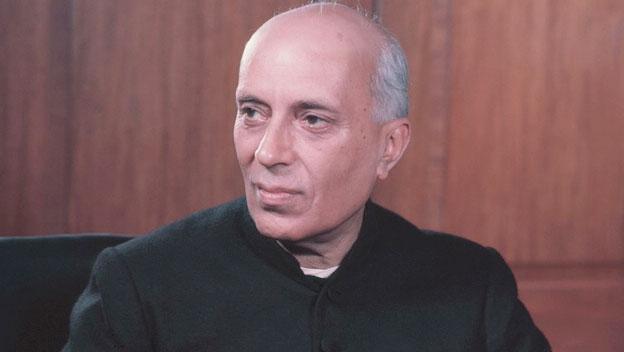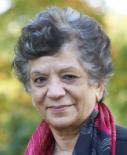Rethinking Secularism: A View From India
archive


Rethinking Secularism: A View From India
How can people who speak different languages, worship different gods, and subscribe to different conceptions of the good live together in a degree of civility, with dignity and with mutual respect? It is not easy to find an answer to this troubled question, given recent political developments in many parts of the world. The proposition that a society is plural insofar as its members hold distinctive conceptions of the good and/or speak different languages is an empirical proposition. There is absolutely nothing in this description which enables us to transit to the normative proposition that each of these conceptions of the good is of worth, deserves respect, or indeed that plurality is a value.
The proposition that plurality is a value requires another argument, and a detailed one. But in brief, we can think of at least three reasons why we should value pluralism. The first reason is pragmatic. Every fundamental right guaranteed by U.N. resolutions, constitutions, and laws proves incapable of fully protecting citizens if they are targeted on grounds of their identity. Therefore unless a society learns to respect groups of a different persuasion, members will always be vulnerable to harm. A group’s right to respect and to dignity is, arguably, an essential precondition of individual rights. Second, some people identify strongly with the community of their birth, others identify weakly, and still others move on. But most of the time we identify with our ascriptive community because it is there that we learn the first alphabets of a cognitive language, which allows us to make sense of ourselves and our relationships with others. Third, a monocultural society in which only one system of belief is allowed to flourish is stripped of the excitement of learning new languages, of acquaintance with other values, of familiarity with unfamiliar cuisines, literature, music, art, sculpture and ways of conceiving the world.
In other words, diversity is a distinct good because it expands our horizons, deepens sensibilities, cultivates empathy, and enhances solidarity. Therefore, the gap between the two propositions on pluralism, one empirical and the other normative, needs to be theoretically bridged. What normative concept other than secularism can bridge the chasm?

Secularism, however, is in crisis, having been subjected to overuse. While a ‘thin’ and limited concept, secularism, in India for example, has had to shoulder the onerous task of nation building, take on the construction of a uniform civil code, bear responsibility for reorganizing and equalizing hierarchical relationships within religious communities, and even stand in for democracy.
Unable to bear the weight of too many political projects, it shows signs of imploding. The west, in the meantime, seems to have given up on secularism and declared post-secularism.
Moments of crisis provide an opportunity to re-examine a concept, clarify what it means and stands for, what the political context of the concept is. This moment can be productive because it compels us to reconsider the foundational presumptions of secularism and rescue this beleaguered concept not only from its opponents, but also its ardent supporters.
The remainder of this essay argues that political secularism, or simply secularism, is not a stand-alone concept. In modern Europe, it was the conceptual companion of a social process termed secularization. Now that the secularization of society is perceived as one of the dispensable vanities of modernity, and now that religion has made a spectacular comeback into the public domain, political secularism has been abandoned by those who once enthusiastically embraced the concept. It needs a new conceptual home. What other home can our societies provide today except democracy? Secularism should be thought of as a companion concept of democracy, not of secularization.
The Emergence of Secularism
In his famous 1689 essay on toleration, John Locke wrote of the need to (a) distinguish civil government from religion, and (b) settle the boundaries between the two. Otherwise, he warned, there will be no end to the controversy between those who ‘pretend’ to have concern for the interest of men’s souls and those who care for the commonwealth. A separation between two formidable forms of power was, in Locke’s view, integral to democracy and to the protection of minority religions. It is simply not the business of the democratic state to coerce citizens into believing, or not believing. Political secularism was the only solution to the problems posed by religious strife.
The wheel has turned. Since the end of the twentieth century, Western political philosophers, theologians, anthropologists, and postmodernists have decided to inaugurate a post-secular age. Postmodern theorists announce the demise of secularism as part of a generic rejection of Enlightenment values. And political philosophers believe that secularism has led to spiritual impoverishment. Human beings no longer have access to ethical resources that can help them negotiate deep philosophical problems. More significantly, religion has been propelled into the public sphere in the form of powerful and evocative politics. Religious movements make demands upon the state and civil society, shape processes of civic engagement in the public sphere, and engage in state-making and state-breaking projects. Western political philosophers have tried hard to come to terms with accommodating religious imaginaries and vocabularies in the public sphere, but ultimately they subordinate these vocabularies to some form of ‘reasonable restriction’.
...political secularism has been abandoned by those who once enthusiastically embraced the concept. It needs a new conceptual home. What other home can our societies provide today except democracy?
The experience of India, where political secularism was institutionalized amidst the politicization of religion, shows a not so neat picture. The relationship between religious and non-religious politics has bred unpredictable, contingent and chancy outcomes. Western political philosophers should pay attention to the Indian experience. It might dent their belief that political predicaments are resolvable. It is time we realize that the politics of co-existence between disparate phenomenon and belief systems is erratic and does not lend itself to tidy explanations.
What is Secularism?
Given this uneasy coexistence between religion, democracy, and secularism in the public sphere, let us take another look at the concept to see how we can recover it as an essential political norm for a plural society. First we must distinguish between secularization as a social process, which entails the privatization of religion, and political secularism as a property of a democratic state. In Europe, secularism has been seen as a companion concept of secularization. But in countries like India it has been institutionalized in the context of the politicization and polarization of religious identities. There is no necessary connection between the two processes, one sociological and the other normative.

Second, it is not the business of a secular state to pronounce on personal faith, ritual, or theological questions. Secularism is concerned with deepening one aspect of democracy in a plural society: equality/non-discrimination between religious communities in the public sphere. This returns us to the point that secularism is not a stand-alone concept, but a companion concept of democracy. Whereas secularism holds that a government shall not harness its projects to a religious agenda, legitimize itself by reference to religious authority, proclaim a state religion, or discriminate against minority groups, democracy establishes that non-discrimination and freedom of belief flow from the generic principle of equality and freedom. The erasure of gender and caste injustice within religious groups is a task that democracy, not secularism, has to take on. Discrimination and injustice within groups are tackled through appeals to individual rights. Social equality within communities is not a duty that secularism has to shoulder; the concept is concerned with equality between groups.

The first Prime Minister of India, Nehru, identified three features that define secularism. The first two, freedom of religion or irreligion and equality of religious practices, can be protected by democratic rights. The third aspect, that the state should not be aligned to any one religion, is crucial to the principle of equality, even to a weaker form of equality as non-discrimination between groups.
The overlap between two formidable forms of power poses a distinct threat to freedom of conscience and expression, provides opportunities to a religious group aligned with the state that are unavailable to other groups, and seriously compromises equal citizenship rights as a basic tenet of democracy. Finally, the task of secularism is to safeguard plurality and ensure equality, and equality has to provide for minority rights—to protect minority communities and promote their cultures. Otherwise minorities will always be at risk in a majoritarian society. This will imperil not only the culture and the practices of the minority community, but also endanger the rights of its members.
Conclusion
The coexistence between religion and secular languages is an uneasy one. Religion gives to believers ‘thick’ or comprehensive conceptions of the good that helps them to make sense of the world, order their lives, and relate to others. This understanding forms the base of religious assertions in the public sphere. The concept of secularism is procedural and, in comparison, ‘thin’ insofar as it establishes procedures that indicate what the place of religion in the public domain is, and what the relationship between different groups should be. I am not suggesting that secularism is not a good, merely that secularism does not tell people how to lead their lives, or what to strive for. The two languages pertain to different sorts of goods and are in many cases difficult to translate. But that is the nature of democratic political life, a life that presents us with irresolvable dilemmas.
Asad, Talal 2003, Formations of the Secular: Christianity, Islam, Modernity.
Berger, Peter 1999, The Desecularization of the World. Washington, D.C.,
Bilgrami, Akheel 2014, “Secularism: Its Content and Context.” In his
Chandhoke, Neera, 1999, Beyond Secularism. New Delhi, Oxford University Press.
Habermas, Jurgen 2006, “ in the Public Sphere: Cognitive Presuppositions for
Between Naturalism and Religion (trans. Ciaran Cronin), Cambridge, Polity.
Locke, John 1689, 1968, A Letter Concerning Toleration. Oxford, Clarendon.



